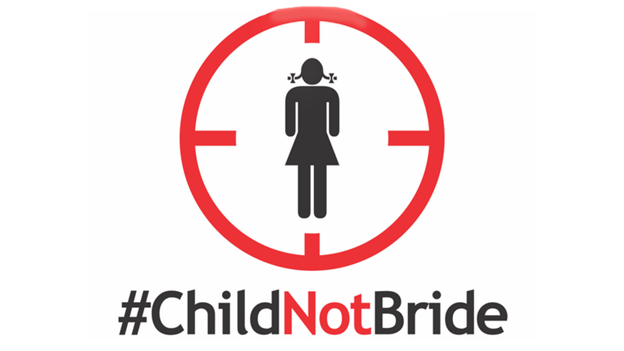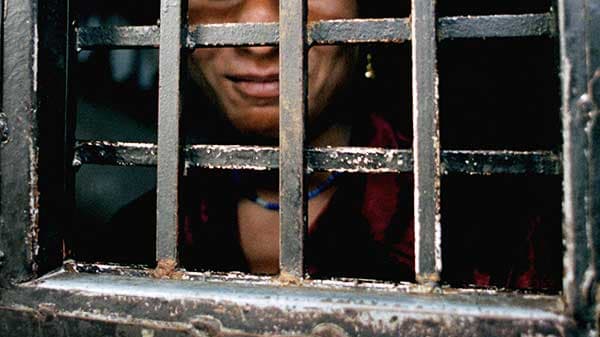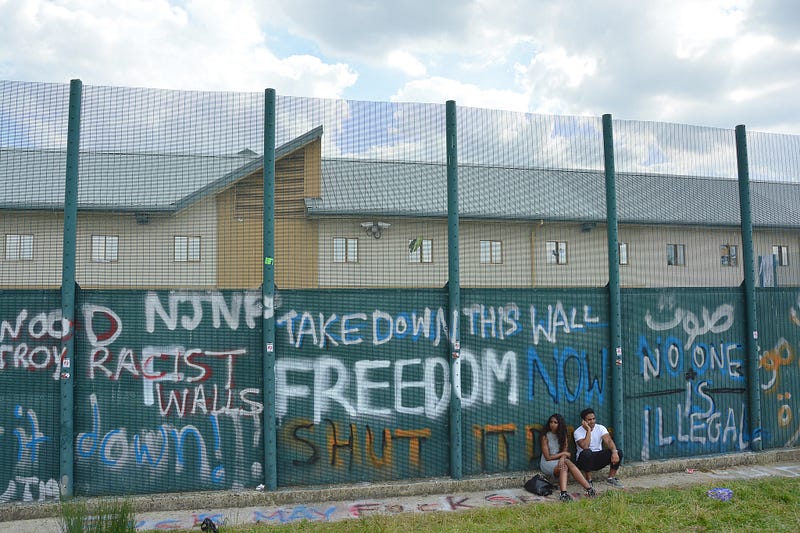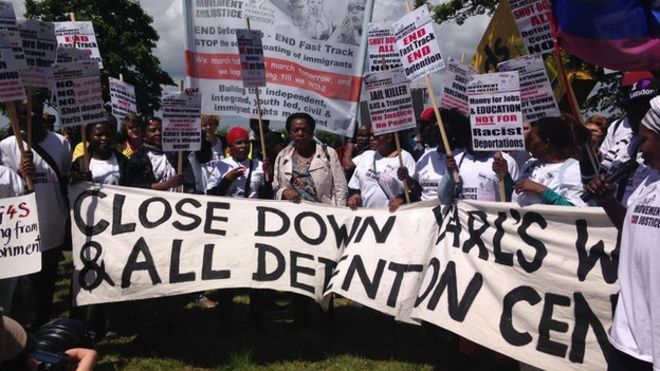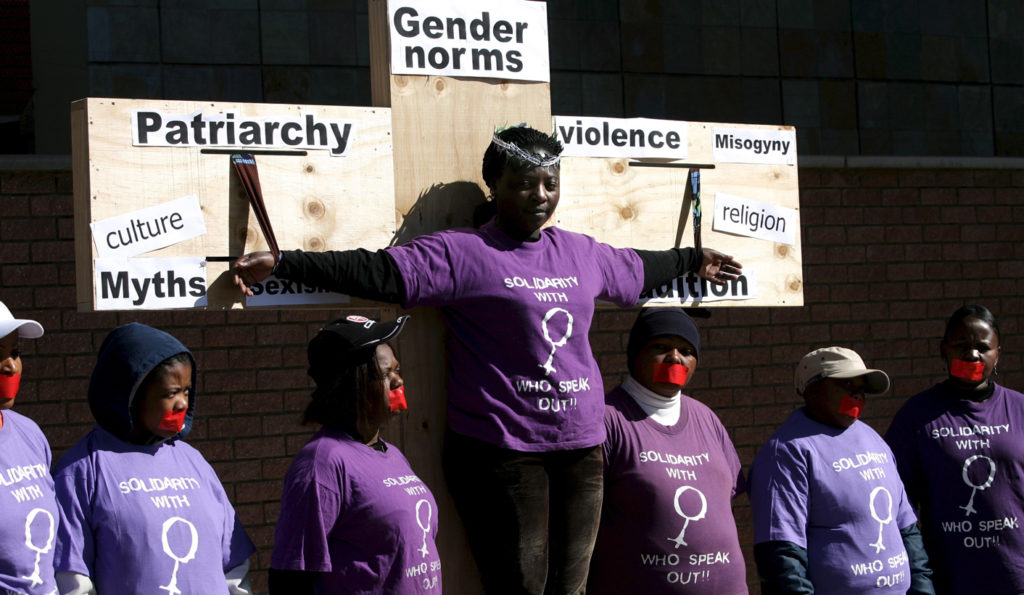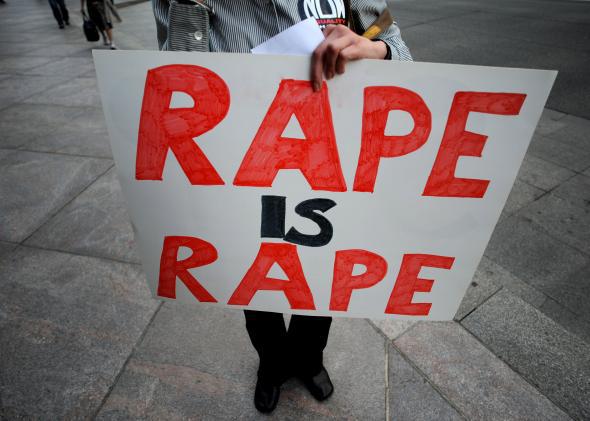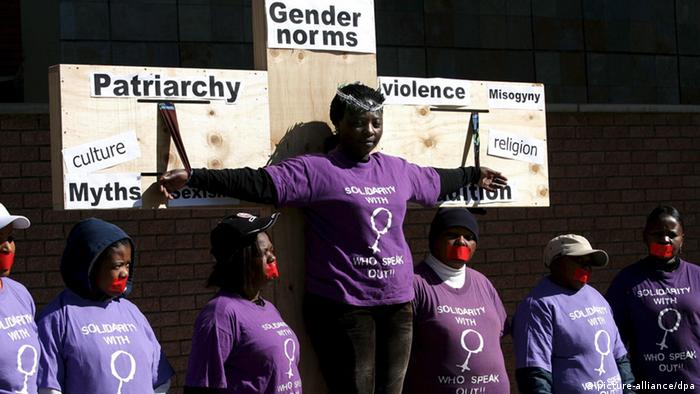
So, yet again, we’re learning how inept at dealing with rape culture we are as a patriarchal, rapey society. Each time has become an opportunity to expose just how entrenched we are as reproducers of this rape culture.
Womxn’s organisations and survivors fought for the right of survivors to be believed before we are criminalized while the rapist gets the benefit of the doubt (as is always the case and is the case with this Zizi situation). Oh and don’t ask me what it was to be at varsity on a Friday and witness our leaders (I could name some names indeed) back then already, coming for their Friday pick-ups of the fresh and fleshy beauts and no that was for no cadre political education sessions. And we all know the hand that lingers too long during the fake handshakes and the midnight knocks in your door by some envoy of some leader to check some nefarious thing in those all too important conferences with those all too important leaders. Yes, I know it and you know it!The complex dynamics of sexual relations, power and interactions on consent within such a context means the very premise of the law as it’s designed is wholly incapable of being an instrument of justice for the many survivors whose stories are a lot more “complex”, which is in fact the majority of survivors.
Whilst it helps no one to have our pain instrumentalised for extortionist or any such intentions, why is it that the default place for our response is they are extortionists?
It’s exactly because this is our default response that our suspicion, which may or may not turn out to be right, says more about us than it does about whether the accusers may in fact be extortionists. If this becomes an issue for you, in a context like South Africa where rape is a norm, that’s really just exposing your rape culture agent status.
If justice means you pay me money for violence and trauma you’ve inflicted on me, whose bloody damn business is it to say what I want isn’t right? After witnessing how the criminal justice system ravages survivors, why would anyone with pure intentions question why a survivor may exercise her agency to protect themselves from that secondary trauma and victimization which is what this unjust system has come to symbolize?
Who appointed you arbiter of survivors’ truth and justice! How about castigating the fact that women get raped exactly because the criminal justice system means a survivor has lost even before they enter the court’s door? The complexity of the truth of rape doesn’t fit in legal statutes, even with impeccable investigation. Why don’t you talk about who do we need to become for us to be capable of advancing justice for survivors instead? We have to reinvent ourselves to become capable of ending impunity. We have to learn a whole new way of seeing, analyzing, asking and articulating questions, a whole new set of questions, a whole new lens. And you can’t do that if you’re so caught up in your own privilege (the privilege to tell a survivor what justice they can ask for and prescribe timing for reporting and how they must feel), that’s unchecked privilege usurping the agency of the survivor. To end the culture of impunity, we need to do the hard work of changing ourselves, our lenses, and journeying to stop being agents of impunity. To those who want to do this, I’m right there, masambe Comrade!
We’ve all made mistakes we wish we could erase, but it’s those mistakes that demand of us to be and to do different. We may not have the formula, but it won’t emerge like a pill from some rat experiment in a laboratory. It will emerge from active work we do to unlearn being agents of rape culture, intentionally and not.
As for the rest, must be nice to have a right to appoint yourself judge and jury as it pleases. A real nice life problem!
(Photo Credit: Deutsche Welle)
